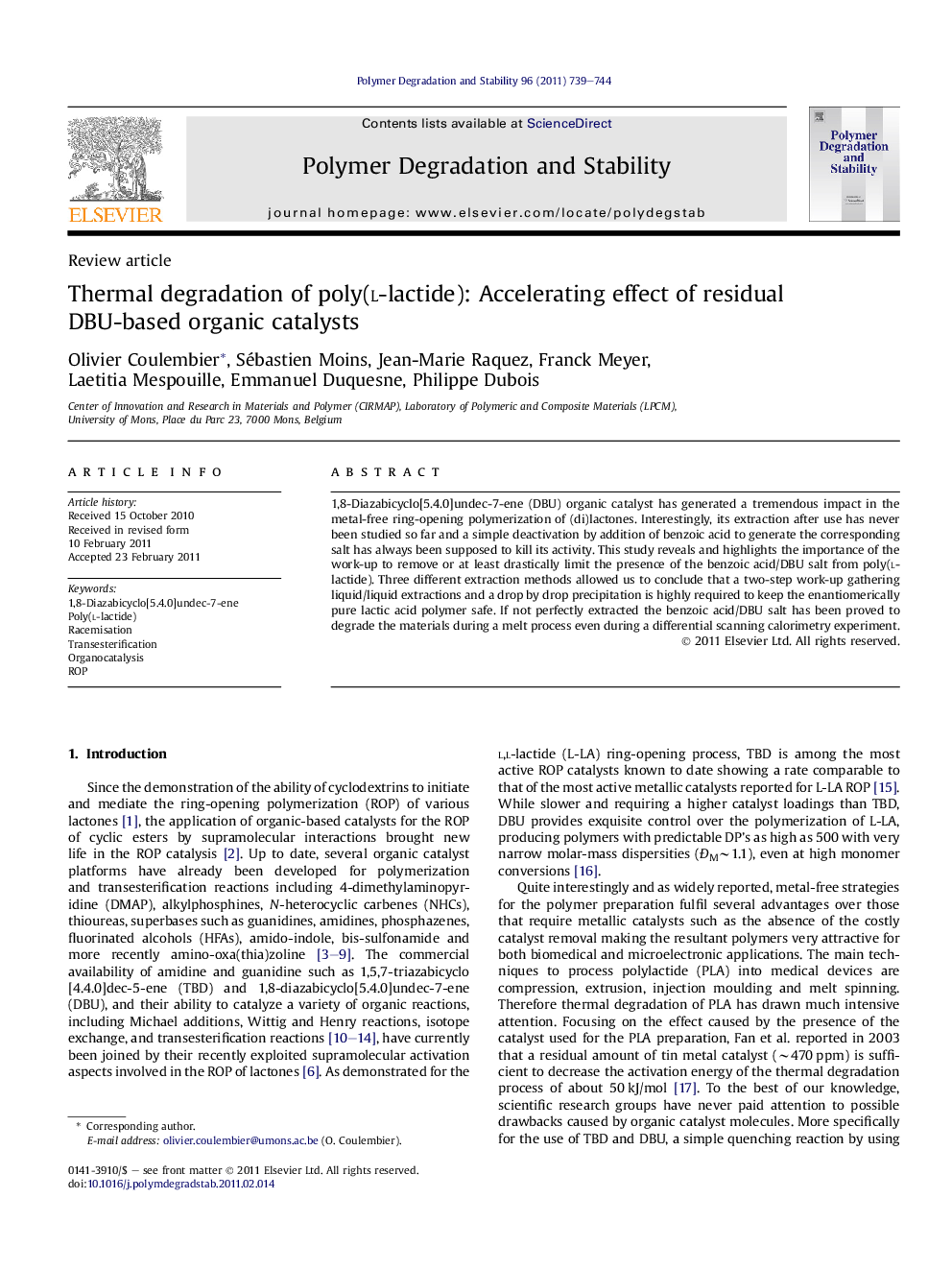| کد مقاله | کد نشریه | سال انتشار | مقاله انگلیسی | نسخه تمام متن |
|---|---|---|---|---|
| 5202676 | 1381907 | 2011 | 6 صفحه PDF | دانلود رایگان |

1,8-Diazabicyclo[5.4.0]undec-7-ene (DBU) organic catalyst has generated a tremendous impact in the metal-free ring-opening polymerization of (di)lactones. Interestingly, its extraction after use has never been studied so far and a simple deactivation by addition of benzoic acid to generate the corresponding salt has always been supposed to kill its activity. This study reveals and highlights the importance of the work-up to remove or at least drastically limit the presence of the benzoic acid/DBU salt from poly(l-lactide). Three different extraction methods allowed us to conclude that a two-step work-up gathering liquid/liquid extractions and a drop by drop precipitation is highly required to keep the enantiomerically pure lactic acid polymer safe. If not perfectly extracted the benzoic acid/DBU salt has been proved to degrade the materials during a melt process even during a differential scanning calorimetry experiment.
The importance of the extraction of DBU/benzoic acid salt after the ROP of l-lactide is discussed. DSC, 1H-NMR, GPC, polarimetry and TGA measurements show the accelerating degradation effect on the poly(l-lactide) during a melt process (even a simple DSC) if the quenched catalyst is not properly removed.
Journal: Polymer Degradation and Stability - Volume 96, Issue 5, May 2011, Pages 739-744